
Exciting new series on “Voice, Body and Movement for Lawyers – How to connect with the jury and find Justice Through Dramatic Technique!”
Click here to find out more
Many of us were attracted to the legal profession because we care about people and want to help them.
Attorneys hopefully recognize that, unlike many other professionals, their lives are already filled to the brim with anxiety and stress. The consequences of shrugging it off can be catastrophic. One of those consequences that we often hear about is burnout.
And then there’s a special type of burnout called “secondary traumatic stress” or “compassion fatigue”. The ramifications of trauma and compassion fatigue aren’t discussed as frequently as those of stress and burnout thus, for many attorneys, they are topics in need of attention.
Secondary or vicarious trauma can be the cumulative effect of listening to a client or witness relay stressful, often graphic, stories and experiences. When we examine it more closely, we realize it is a part of many practice areas. Those who experience compassion fatigue tend to take on the pain, suffering and burdens of the people they are helping. It is an exhaustion that is felt physically, emotionally, or mentally and can affect numerous areas of your life, often leaving you feeling numb.
Recent studies have shown that there has been a dramatic increase in impairment due to alcoholism, addiction, and mental health disorders among members of the legal profession. The statistics are compelling and clearly indicate that 1 out of 3 attorneys will likely have a need for substance use or mental health services at some point in their careers.
Mr. Quinn will discuss:
1. The early warning signs of impairment, with special emphasis on stress, burnout, trauma and compassion fatigue.
2. The free services that Lawyers Assistance Programs provide to lawyers, judges, their family members and law students.
3. A close look at what barriers exist that prevent lawyers and judges from seeking the help they need will be provided.
4. The role that education plays in breaking the stigma and fear associated with addiction and mental illness in the legal profession.
5. How best to approach the impaired individual.
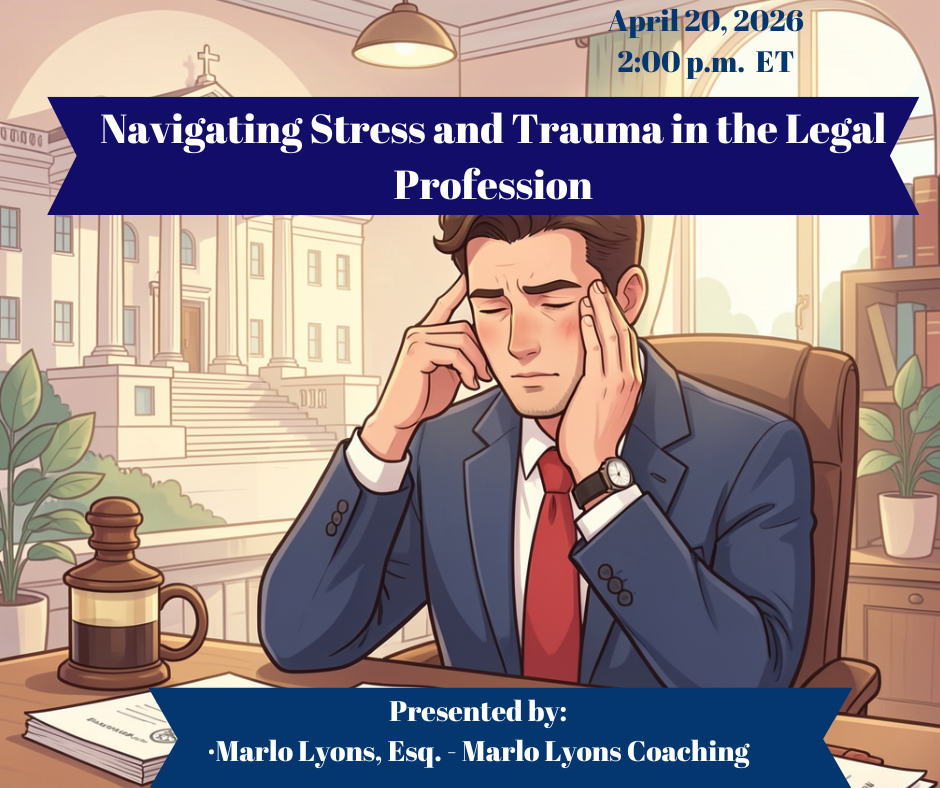
Navigating Stress and Trauma in the Legal Profession, explores the unique challenges faced by legal ...
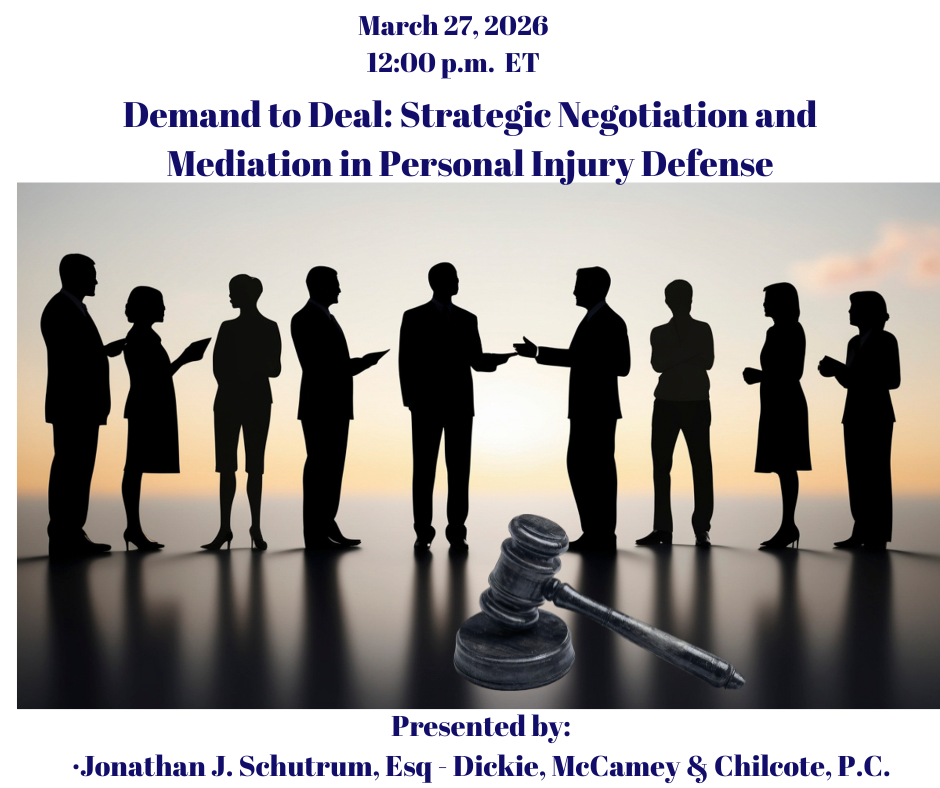
Successful personal injury defense practice requires far more than strong legal arguments—it d...
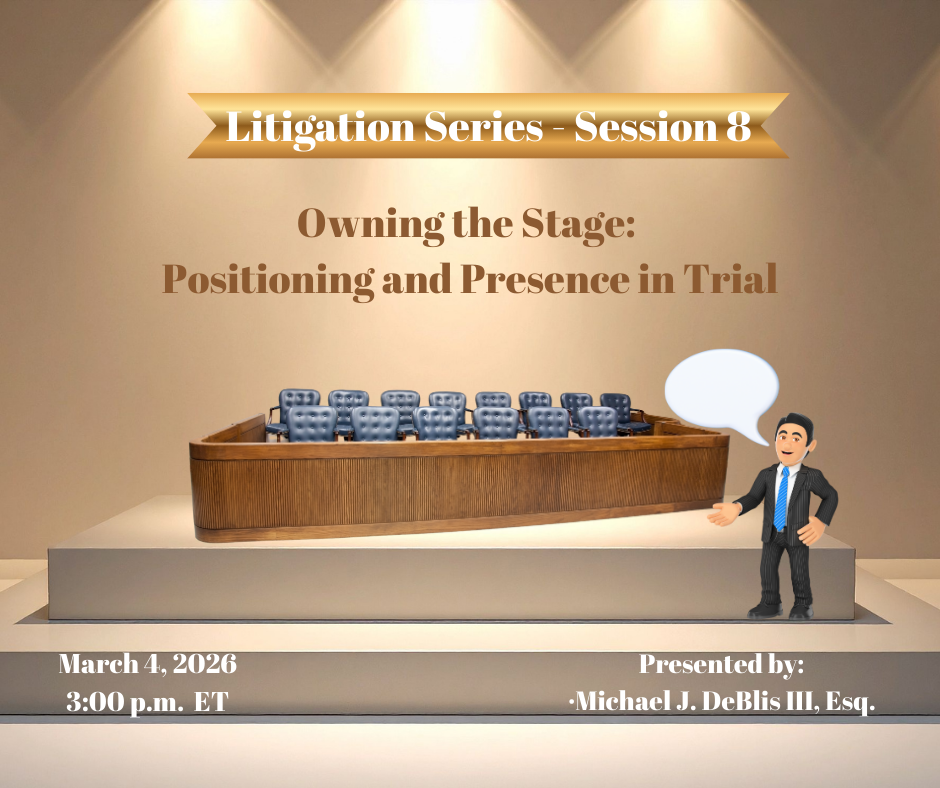
This presentation explores courtroom staging—how movement, spatial awareness, posture, and pre...
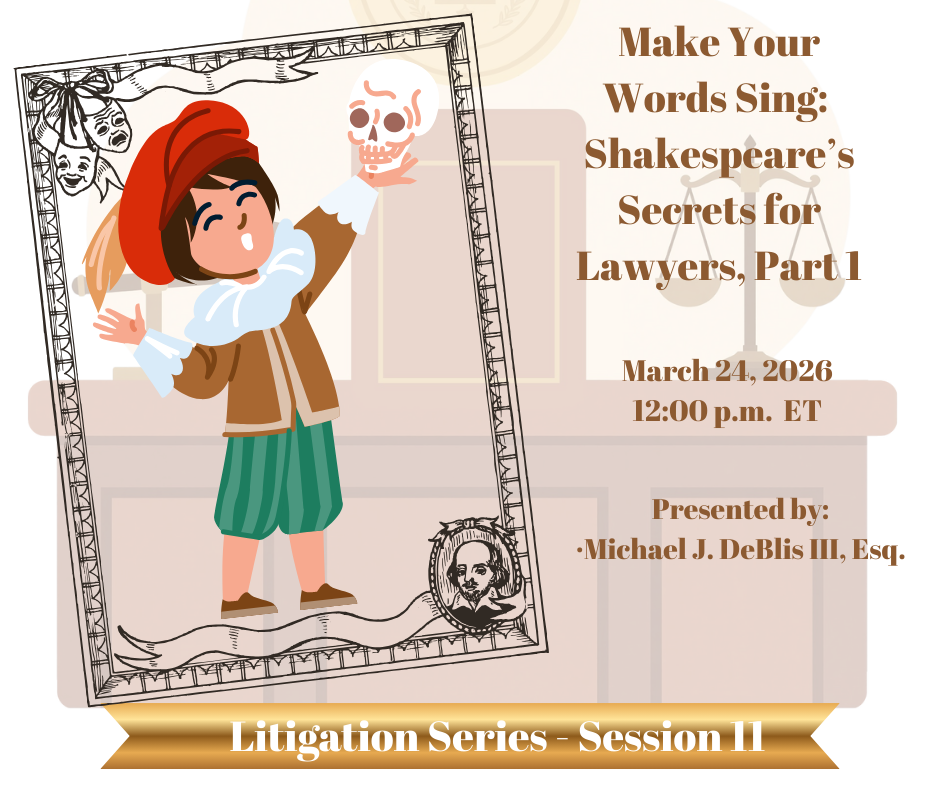
This Shakespeare?inspired program illustrates how Shakespearean technique can enrich courtroom advoc...

As artificial intelligence becomes the engine of the global economy, the value of "AI-ready" data ha...
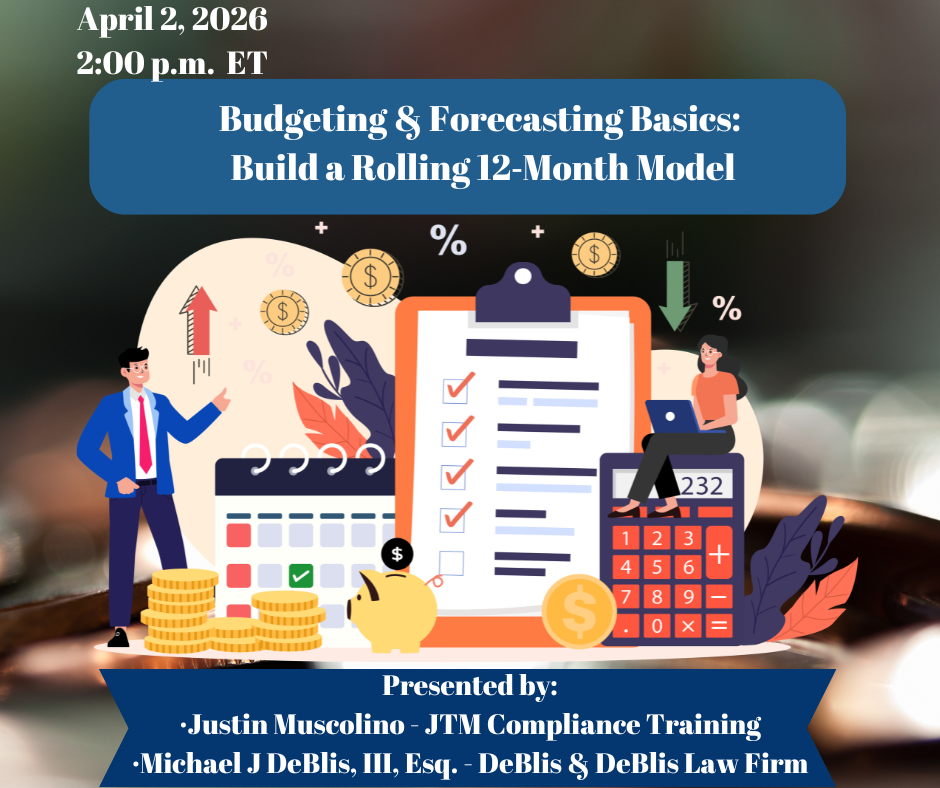
This CLE session introduces attorneys to budgeting and forecasting concepts used in corporate planni...
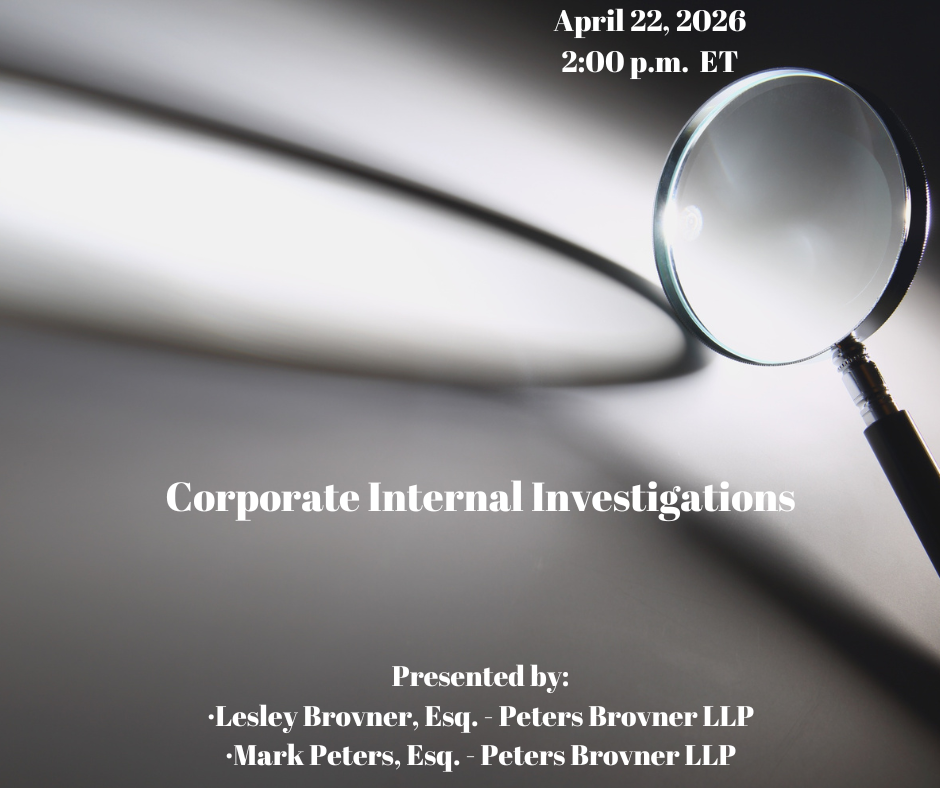
The CLE will cover the Ins and Outs of Internal Corporate Investigations, including: Back...
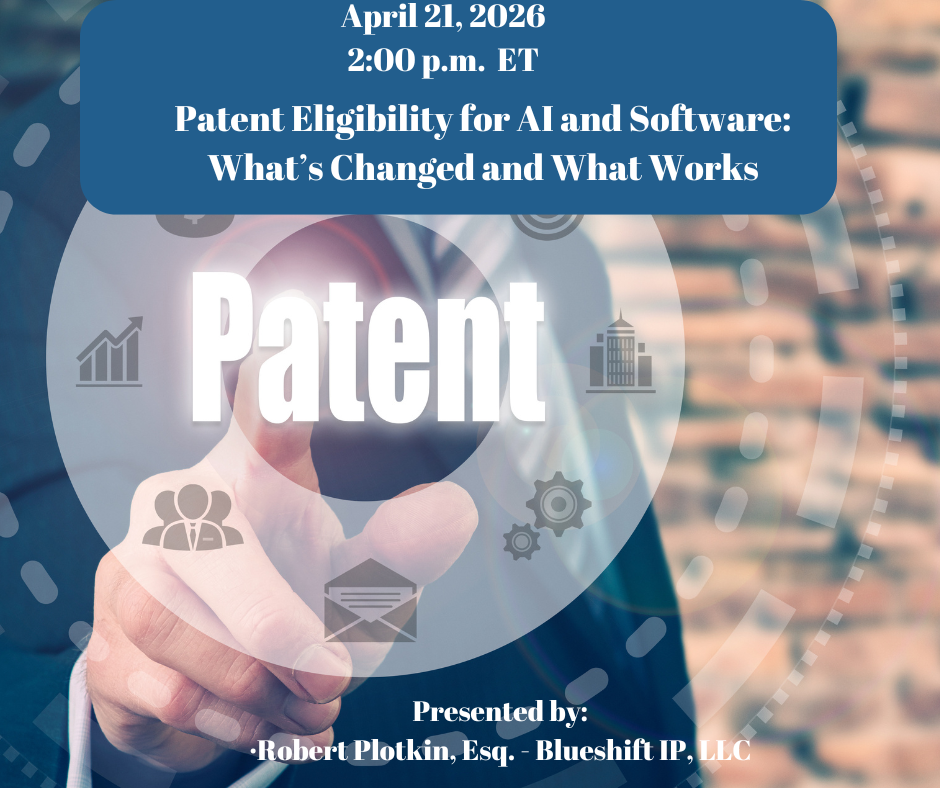
This program examines critical 2025-2026 developments in patent eligibility for software and AI inve...
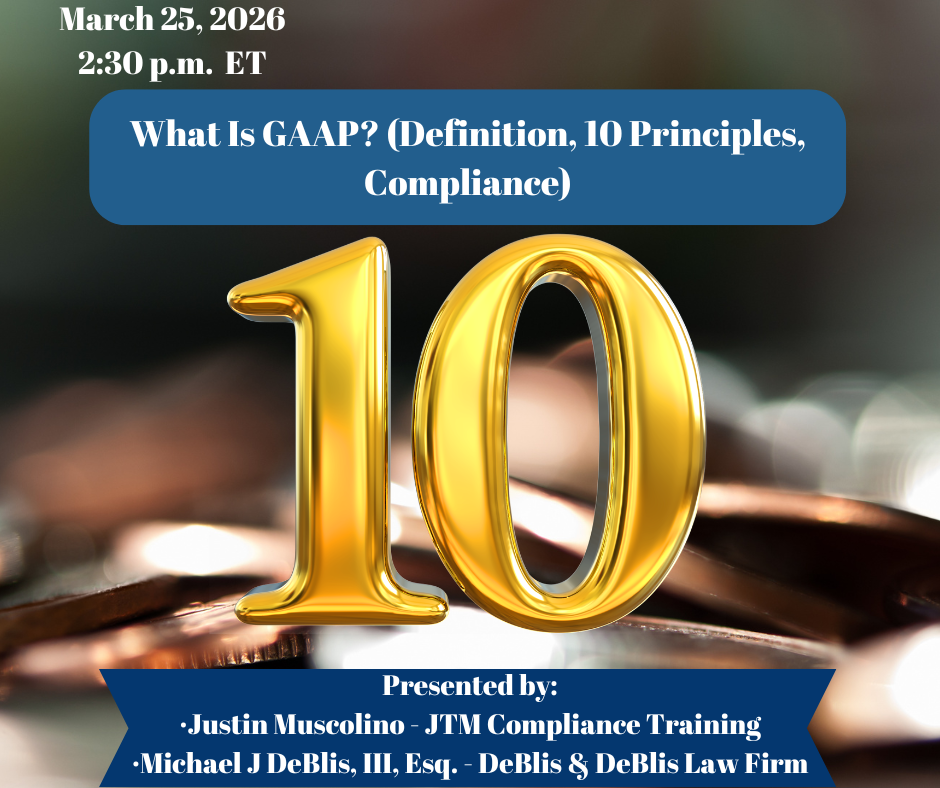
This course breaks down GAAP’s ten foundational principles and explores their compliance impli...
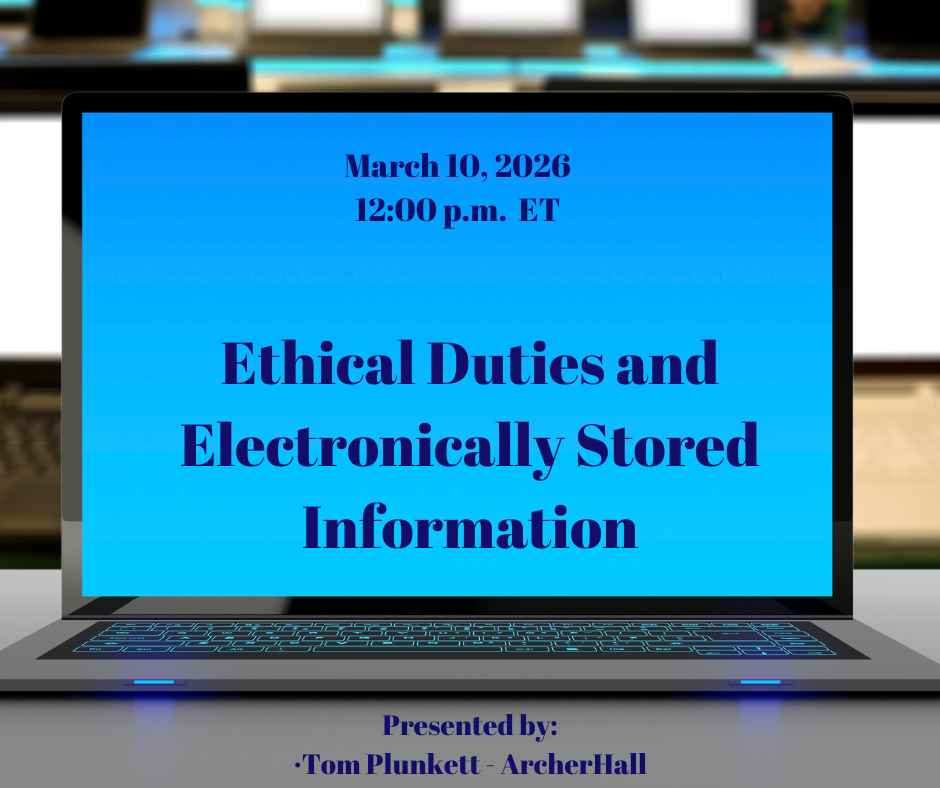
This CLE program examines attorneys’ ethical duties in managing electronically stored informat...